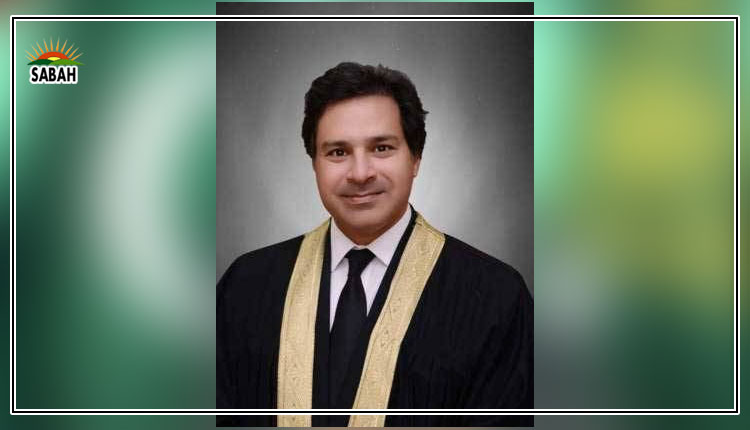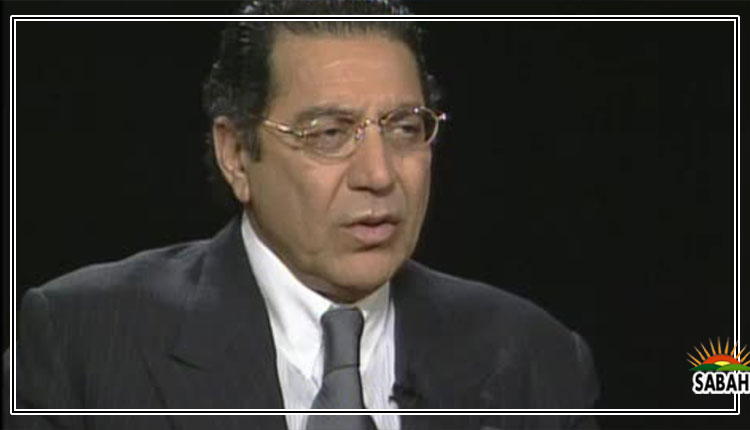Despite India’s massive repression, the people of occupied J&K are continuing their heroic struggle for freedom: Munir Akram
NEW YORK, Feb 04 (SABAH): The Organization of the Islamic Cooperation (OIC) Contact Group for Jammu and Kashmir at the United Nations held an informal meeting, hosted by Ambassador Munir Akram, the Permanent Representative of Pakistan to the United Nations, to discuss collective efforts to promote the just and lasting resolution of Kashmir dispute.
Ambassador Munir Akram briefed the OIC Contact Group members on the current and ongoing situation in Indian Illegally Occupied Jammu and Kashmir (IIOJ&K). He further stated that IIOJ&K was the “densest occupation in history”. He underlined that despite India’s massive repression, the people of occupied Jammu and Kashmir are continuing their heroic struggle for freedom and the exercise of the right to self-determination as prescribed by the UN Security Council resolutions. In turn, Pakistan would continue to extend its diplomatic, moral, and political support to the legitimate Kashmiri struggle for self-determination and to end India’s illegal occupation and oppression.
Ambassador Munir Akram thanked the members of the OIC Contact Group for the participation in the meeting and support for the Kasshmir cause.
Meanwhile Ambassador Munir Akram on Saturday at a virtual commemoration to mark the Kashmir Solidarity Day, organized by Pakistan Mission to the United Nations, New York said that Indian campaign of oppression has not succeeded in extinguishing the desire and demand of the Kashmiri people for freedom and self-determination.
In his opening remarks, Munir Akram said with determination that “Kashmiri freedom struggle continues and will continue”. “The government and people of Pakistan are committed to continue their support to the people of occupied Jammu & Kashmir until they achieve their legitimate rights and their freedom and liberty” he added.
Briefing the participants, Ambassador Akram noted that, Kashmiri struggle has been kept alive for 70 years. I’m confident it will stay alive until it succeeds and therefore, we must do everything possible to support that choices to support the rejuvenation and strength of that”.
The event was moderated by Ambassador Munir Akram, Permanent Representative of Pakistan to United Nations. The event featured distinguished Ambassadors/ representative from Organization of Islamic Council (OIC) who joined Pakistan Mission in expressing solidarity with Kashmiris.
Keynote address was delivered by Ambassador Tehmina Janjua, a retired diplomat and 29th Foreign Secretary of Pakistan. Ms. Janjua in her remarks recalled that “History tells us that struggles for freedom cannot be vanquished, and that the people who fight for the rights and liberty are inevitable and that the Kashmiri people were so valiantly struggling for their rights, and are bound to fight it as a collective task to hasten the march of history to hasten the day when the Kashmiri people realize the goal of freedom”. She reiterated the need “to be an analysis of the legal options available to counter the human rights violations in Indian occupied Jammu and Kashmir”.
Ambassadors from OIC Member States, participated and expressed their solidarity includes Abdulaziz Alwasil, Permanent Representative of Kingdom of Saudi Arabia, who said that “diplomatic and political solution for the Jammu and Kashmir conflict is the only way to resolve this dispute”; Yashar Aliyev, Permanent Representative of Azerbaijan said that “Azerbaijan will continue its active engagement in work of the Contact Group with a firm conviction that peace and security will soon be established in the region”, Feridun Hadi Sinirlioğlu, Permanent Representative of Turkiye raised “solidarity with our Kashmiri brothers and sisters in their quest to find a just comprehensive and lasting solution”., and others.
The events also featured distinguished Panelists including a renowned Kashmiri Leader and activist Ghulam Nabi Mir, who shared his concerns on “settler colonialism floodgates, that have been open, in which non-Kashmiri Hindus have been brought in are being brought in to dilute the Kashmiri population with a special purpose under the new term domicile law”.
Ms. Mushaal Hussein Malik, a peace activist, said “We have seen that Indian forces have never been held accountable on any war crimes. India has been consistently and constantly been violating international law and their forces must be persecuted under international law”. Ms. Victoria Schofield, a renowned historian, said “I am non-Kashmiri, but I have been following the issue for decades. The people should not have to live the lives of trauma that they do live in and therefore, it’s imperative that there is some form of resolution”.
Salman Khan, a human rights activist, reiterated the need that “We need to give them hope and we need to get them out and make sure that our unity is there. We need to make sure that we have one slogan and leader, to ensure that it is followed”.
Abdelhamid Siyam, a Palestinian professor as a Palestinian shared what it “means to be under occupation and what it means to be exiled from your homeland and continue to see your people suffering day and day out”. “I see so many similarities between the Palestinian and Kashmir issue from the very beginning when you see that both issues were the direct result of United Kingdom’s colonialism” he said.
And Hashir Ali, a youth representative said that “the people of Kashmir are disproportionately as a disadvantaged, disproportionately mishandled are disproportionately deprived on the right to self-determination”.
In his concluding remarks, Ambassador Munir Akram posed his confidence saying, “that despite the difficult odds they face against the oppressor, the Kashmiri people will persist in their freedom struggle until the day of liberation and transform their courage into victory”. “The purpose of Kashmir solidarity day is to revive our commitment to the cause of freedom and self-determination of the people of Kashmir. Secondly, to analyze where we are and the challenges they face and most importantly, to try to formulate the actions and strategies that we look to promote action” he concluded.












